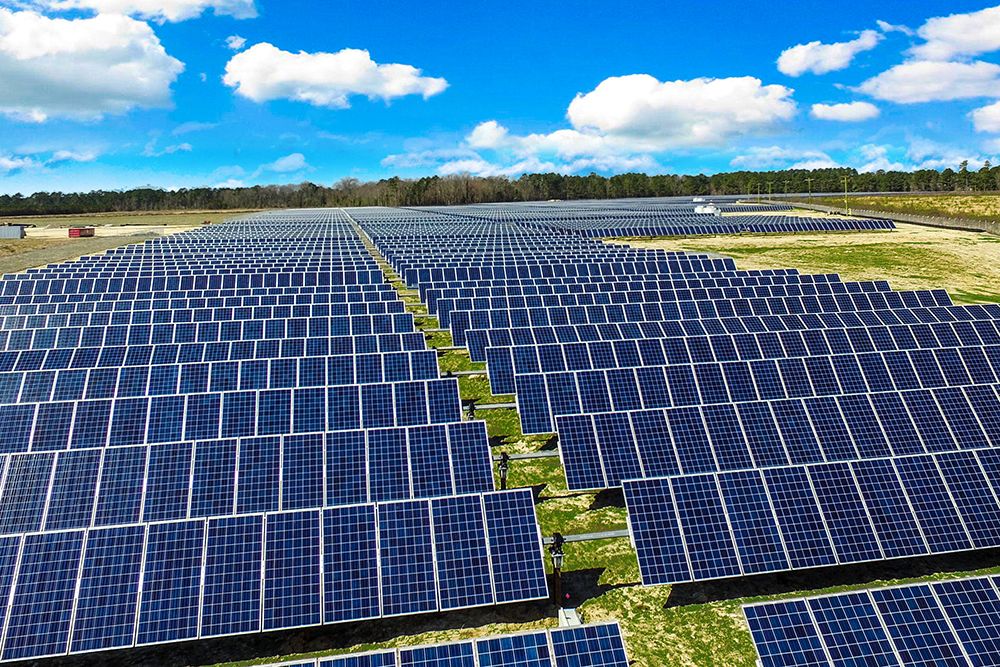The Benefits of Solar Power: Harnessing Renewable Energy
Solar power, also known as solar energy, is a renewable and sustainable source of electricity that harnesses the power of the sun. This article explores the numerous benefits of solar power and its positive impact on the environment, economy, and society.
Clean and Renewable Energy Source
Solar power is a clean and renewable energy source that produces electricity without emitting harmful greenhouse gases. Unlike fossil fuels, which contribute to air pollution and climate change, solar power systems generate electricity through photovoltaic (PV) panels or concentrated solar power (CSP) plants, without any harmful emissions.
Reduced Electricity Bills
One of the significant advantages of solar power is its potential to reduce electricity bills. By installing solar panels on rooftops or utilizing solar farms, homeowners and businesses can generate their electricity, reducing their reliance on the grid. This leads to substantial savings on monthly electricity bills, especially in regions with abundant sunlight.
Financial Incentives and Government Support
In many countries, governments provide financial incentives and support for adopting solar power. These incentives may include tax credits, grants, or rebates, which make the installation of solar power systems more affordable. Additionally, some regions allow homeowners and businesses to sell excess electricity back to the grid, further increasing the financial benefits of solar power.
Job Creation and Economic Growth
The solar power industry has witnessed significant growth in recent years, leading to job creation and economic development. As the demand for solar power increases, more job opportunities are being created in the manufacturing, installation, and maintenance of solar panels. This industry expansion contributes to local economies and fosters sustainable economic growth.
Energy Independence and Security
Solar power promotes energy independence and security by reducing reliance on imported fossil fuels. By harnessing the abundant solar energy available, countries can reduce their dependence on foreign oil and gas, enhancing their energy security. This independence also protects against price fluctuations in fossil fuel markets, providing stability in energy costs.
Environmental Benefits
Solar power plays a crucial role in mitigating climate change and preserving the environment. By replacing fossil fuel-based electricity generation with solar power, we can significantly reduce carbon dioxide (CO2) and other greenhouse gas emissions. Solar power also helps conserve water resources, as it requires minimal water for operation compared to traditional power plants.
Long-Term Investment
Investing in solar power is a wise long-term financial decision. Solar panels have a lifespan of 25-30 years, and with proper maintenance, they can operate efficiently even beyond that period. Moreover, the cost of solar panels has significantly decreased over the years, making it a more affordable option for individuals and businesses alike.
Scalability and Versatility
Solar power systems are highly scalable and can be tailored to meet various energy needs. Whether it is a small residential installation or a large-scale solar farm, solar power can be customized to fit the required capacity. Additionally, solar panels can be installed in various locations, including rooftops, open fields, and even on water bodies, maximizing their versatility.

Solar power offers numerous benefits, from reducing electricity bills and creating job opportunities to promoting environmental sustainability and energy independence. By harnessing the power of the sun, we can transition towards a cleaner, greener, and more sustainable future. Embracing solar power is not only a smart choice for individuals and businesses but also a crucial step toward combating climate change and building a better world for future generations.
Frequently Asked Questions about the Benefits of Solar Power
1. What are the environmental benefits of solar power?
Solar power is a clean and renewable energy source, which means it produces no greenhouse gas emissions and helps reduce air pollution.
2. How does solar power benefit homeowners financially?
Installing solar panels can significantly reduce electricity bills you generate your own electricity and rely less on the grid. Additionally, some governments offer incentives and tax credits for solar installations.
3. Can solar power increase the value of my home?
Yes, studies have shown that homes equipped with solar panels tend to have higher property values and sell faster compared to homes without solar power systems.
4. Are there any health benefits associated with solar produce power that helps in reducing air pollution, which can have a positive impact on human health by decreasing respiratory and cardiovascular problems caused by pollutants emitted by fossil fuel power plants?
5. How does solar power contribute to energy independence
By generating your own electricity from solar panels, you become less dependent on traditional energy sources, reducing the reliance on foreign oil and promoting energy independence.
6. Can solar power create job opportunities?
Yes, the solar industry has been a major source of job creation. The installation, maintenance, and manufacturing of solar panels have created numerous employment opportunities worldwide.
7. Are solar panels durable and long-lasting?
Solar panels are designed to withstand harsh weather conditions and are typically built to last for 25 to 30 years. Many manufacturers provide warranties to ensure their longevity and performance.
8. Does solar power work during cloudy or rainy days?
While solar panels are most effective in direct sunlight, they can still generate electricity on cloudy or rainy days. However, the output may be slightly reduced compared to sunny days.
9. How does solar power contribute to a sustainable future?
Solar power is a renewable energy source that can be harnessed indefinitely. By utilizing solar power, we reduce our reliance on finite fossil fuels and move towards a more sustainable and cleaner energy future.
10. Can solar power be used in remote or off-grid areas?
Absolutely! Solar power is an excellent solution for remote locations or areas without access to the traditional power grid. It provides a reliable and independent source of electricity.




